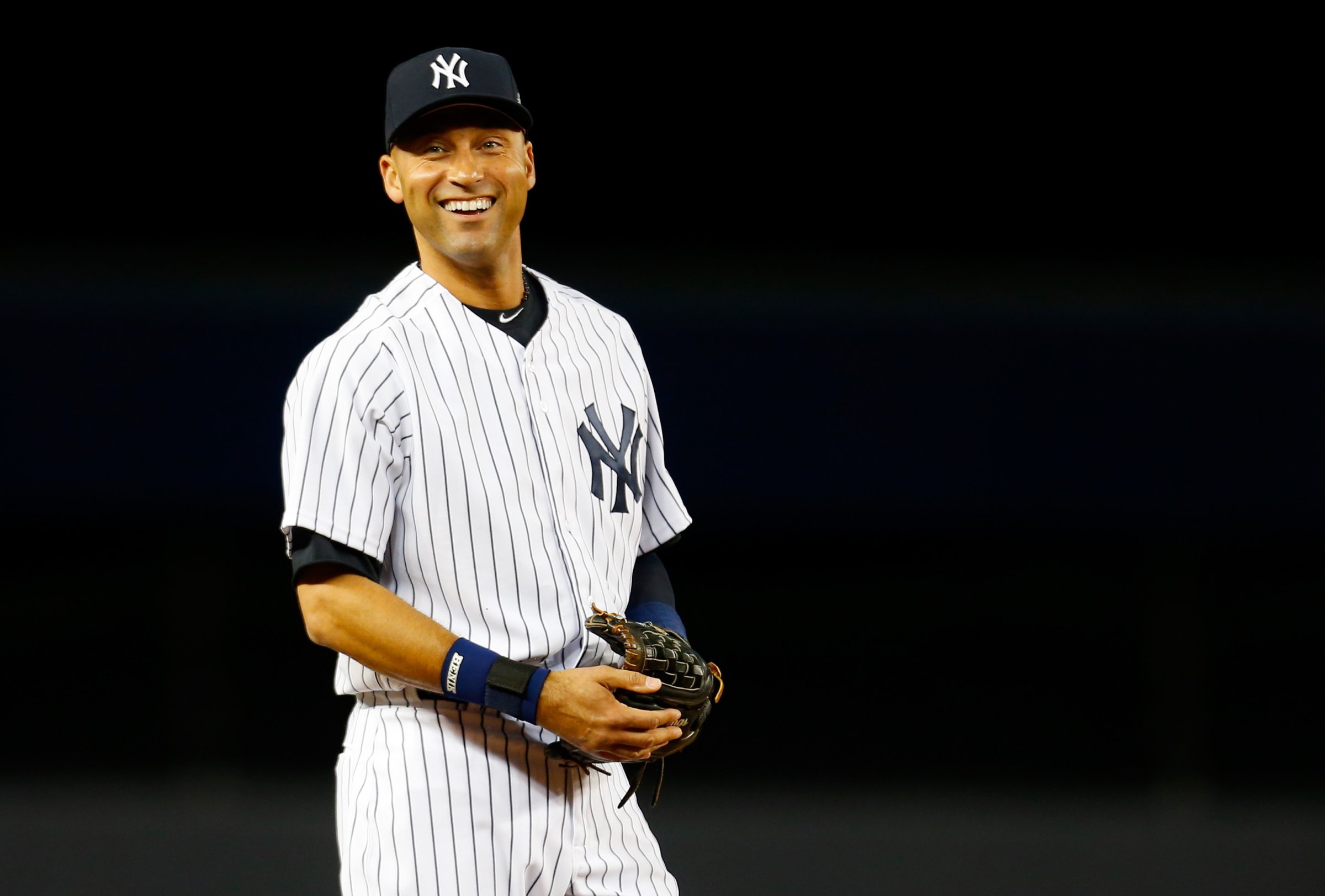
The New York Yankees have a Derek Jeter problem. Sure, the endless pomp surrounding Jeter’s retirement has kept a lot of people watching a team that won’t make the playoffs. But during his long goodbye, Jeter simply hasn’t produced. Entering Wednesday’s game, Jeter was hitting .255 – a full 55 points below his career average. His .615 on-base percentage (OPS) is the second-lowest of his career, ahead of only his .542 clip during last year’s injury induced abbreviated 17-game campaign. Jeter has hit a home run in 0.6% of his plate appearances; excluding his brief call-up in 1995, when he did not hit a home run in his 51 plate appearances, Jeter’s prior low was a 1.3% home run percentage in 1997. So in this category, it has been his weakest year, by two. He has drawn a walk in 5.6% of his plate appearances, another career low.
Outside the batter’s box, Jeter’s struggles as a shortstop have long been documented. And they’ve continued this season. According to the analytics, he’s below-average at his position.
In the public’s imagination, Jeter — who will play his last home game as a Yankee on Thursday night — is one of the greatest clutch hitters of all-time. But on Tuesday night, with the Yankees barely hanging on to the mathematical miracle they would have needed to make the post-season, Mighty Jeter struck out, with the tying run was on first, to end the game. It was a fitting summation of the season.
The Derek Jeter problem extends to all of baseball. Despite his shaky last-season performance, Jeter is still the most familiar, marketable, beloved player in the game. And right now, the sport has no one to replace him.
That love was on full display a few Sundays ago, during Derek Jeter Day at Yankee Stadium. Three-plus hours before the start of New York’s game against the Kansas City Royals – which the Yanks lost 2-0 – dozens of Yankees fans milled about. Joe Talnagi, 21, was asked what he was going to do during all this pre-game down time. “Probably cry,” said Talnagi, a college student from New Jersey. “Number 2” patches graced bottles of wine resting on the locker room chairs of all his Yankee teammates, the Yankee uniforms, and the flags atop the stadium. They were painted onto the field, along the first- and third-base lines. Jeter’s former teammate Jorge Posada showed up, and called Jeter the greatest Yankee of all-time. Michael Jordan was the surprise guest, and said Jeter is an “idol to me.”
Jeter’s fans, teammates, and buddies aren’t the only ones who idolize him. According to Q Scores Company, among active athletes recognized by more than half the U.S. population, Jeter owns the second-highest “Q score” – a general favorability rating – trailing only Peyton Manning. The bad news: no other baseball player ranks in the top 15. “Baseball players aren’t even on the national radar for the general population,” says Henry Schafer, an executive vice president at Q Scores. “They’re just not out there like players from other sports.”
Baseball has become a more regionalized game, a series of thriving fiefdoms with little national cultural connection. Thanks to lucrative local television deals, stable attendance, and smart digital investments by Major League Baseball Advanced Media, the game’s overall revenues have grown. The sport is in fine economic health. But fans are getting older. The game is getting slower and slower, which hurts its appeal among younger viewers. Rarely is a regular season game appointment television. There’s just too much competition. A quarter century ago, NBC offered a “Game of the Week” on Saturdays. Now, the network offers Premier League soccer, a hipper product, on its cable channels. European soccer over baseball once seemed like a ridiculous proposition. Not anymore.
How did Jeter, who played 20 seasons in New York, won five World Series rings and has 3,461 hits–sixth-best of all time–break through? “Being able to accomplish all that, for that long a period of time, in a major market is highly unusual,” says Schafer. “The Yankees are both loved and hated across the country, but what’s surprising is he rises above it. He’s a likeable individual, and he’s respected.”
For 20 years, no personal scandal has interrupted the Jeter narrative: he’s a winner, a leader, a guy who plays the game “the right way.” During the Jeter ceremony, if any fans played a “right way” drinking game during the dozens of between-inning personalized messages that former teammates, opponents, New York sports legends like Joe Namath and random big names like Kenny Chesney and Matt Lauer delivered on the video board, they were sloshed before the seventh-inning stretch.
“He’s pretty much the face of baseball,” says Schafer. “There’s going to be a big void. It’s going to be like when the NBA was trying to find the next Michael Jordan. Baseball is going to have a very tough time finding the next Derek Jeter.” On Schafer’s list, there is one other active baseball player that more than half of the general population recognizes.
It’s A-Rod.
More Must-Reads from TIME
- Cybersecurity Experts Are Sounding the Alarm on DOGE
- Meet the 2025 Women of the Year
- The Harsh Truth About Disability Inclusion
- Why Do More Young Adults Have Cancer?
- Colman Domingo Leads With Radical Love
- How to Get Better at Doing Things Alone
- Michelle Zauner Stares Down the Darkness
Write to Sean Gregory at sean.gregory@time.com